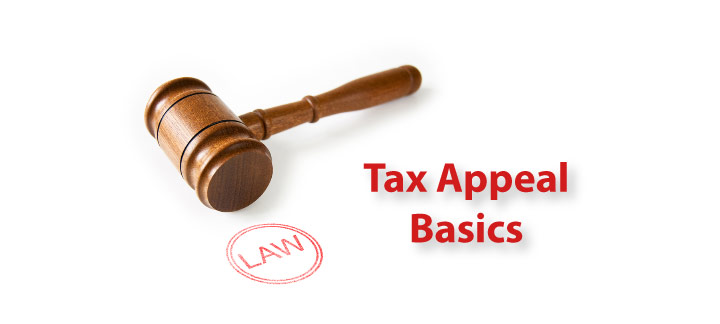Basics of Tax Appeals – History and Purpose
When you have a disagreement with the IRS over the amount of tax you owe, you may need to enter into negotiations with the Office of Appeals. The Office of Appeals is in charge of administrative dispute resolution with the IRS. The Office of Appeals is able to resolve disputes because it is “the only administrative function of the Service with the authority to consider settlements of tax controversies, and as such has the primary responsibility to resolve these disputes without tax litigation to the maximum extent possible.” The goal of appeals is to solve tax controversies without resorting to litigation.
History of Appeals
Taxpayers have had the ability to appeal tax disputes with the IRS since 1927. The name of the appeals office has changed through the years, and the appeals system was formally created in the Commissioner’s Statement of Procedural Rules. In the IRS Restructuring and Reform Act of 1998, the Appeals function was given statutory recognition.
Under the current Appeals scheme, Appeals officers and other IRS employees hear taxpayer appeals on matters such as tax deficiencies, offers in compromise, and collection due process reviews.
Code Provisions Related to Tax Appeals
Various sections of the Internal Revenue Code describe aspects of the tax appeal process:
- Section 7429 provides for administrative due process review of a jeopardy or termination assessment, including Appeals Office review. (LINK TO OUR ARTICLE ABOUT JEOPARDY OR TERMINATION REVIEW).
- Section 7430 provides for an appeals process. The section allows taxpayers to recover reasonable litigation costs, but only after he or she has exhausted any available administrative remedies. An example of when this provision comes into play is where the taxpayer substantially prevails in an administrative proceeding or action in court and is awarded a judgment for reasonable costs incurred during the proceeding. Under this provision, the party moving for costs must also prove that (a) the moving party did not unreasonably protract the proceeding, and (b) the moving party was the prevailing party.
- The Appeals Office has full jurisdiction over many different types of collections cases. These examples are enumerated in various Internal Revenue Code sections. IRC section 6320 gives the Appeals Office jurisdiction over the due process review after the filing of a notice of lien. Along a similar vein, section 6330 gives the Appeals Office jurisdiction of the due process review which must be given before a levy of property takes place. An appeals process is permitted to review rejected offers in compromise under section 7122(d), to review termination of installation payment agreements under section 6159, and to deal with other collection issues under section 7123.
- The Appeals Office is involved in administrative reviews of jeopardy and termination assessments. A jeopardy assessment is made when the IRS determines that the collection of tax is in jeopardy by the taxpayer fleeing or hiding or disposing of assets. The levy required under a jeopardy assessment calls for the taxpayer to immediately surrender his or her property, but the taxpayer is eventually allowed to pursue an administrative review of the propriety of the jeopardy assessment.
- If a local IRS rejects a taxpayer’s offer in compromise or installment agreement, the taxpayer has the option of pursuing administrative review to appeal that decision. The Appeals Office is tasked with hearing these appeals by taxpayers, under section 7122(d)(2).
- Under section 6404(e), the Appeals Office has jurisdiction over requests for abatement of interest on a deficiency, where the deficiency is due to delays of Service managers and employees in performing a managerial act.
- Section 7123 sets forth Appeals Dispute Resolution Procedures and requires specific procedures for taxpayers to resolve unresolved issues with the Office of Appeals. The same procedures also permit the taxpayer and the Office of Appeals to use the alternative dispute resolution procedures of mediation and arbitration of certain issues.
- Before an assessment for trust fund recovery penalty under section 6672(b) can be made against a taxpayer, the IRS must give notice of the assessment to the taxpayer. This notice must also include a provision that the taxpayer can seek Appeals review to evaluate the merits of the proposed assessment.
- The Appeals Office or an appeals function is mentioned in various other sections of the Internal Revenue Code. In innocent spouse cases under section 6015, there is a presumption regarding transfers with a primary purpose of tax avoidance. In those cases, the Appeals Office has jurisdiction over notifications of administrative review of deficiency assessment. The code section defining the “30-day letter” received by taxpayers after the conclusion of an examination makes specific reference to the first letter sent notifying the taxpayer of an administrative appeal to the Office of Appeals.
How a Tax Attorney Can Help with Administrative Appeals
At the appeals stage, the IRS Appeals Agents are even more sophisticated and knowledgeable than IRS Revenue Agents. In order to achieve a favorable results on appeal, you must be able to make your case in an organized and thorough manner. As this article demonstrates, the possibilities for administrative review at the Appeals Office are extensive in the Internal Revenue Code. Dealing with the Appeals Office may provide you with the most efficient and cost effective means of resolving your issues with the IRS. An experienced tax attorney can present your case in the most convincing manner, using evidence as well as legal authority and analysis. If you have received information from the IRS documenting your right to appeal, call today for a free consultation.



Comments (0)